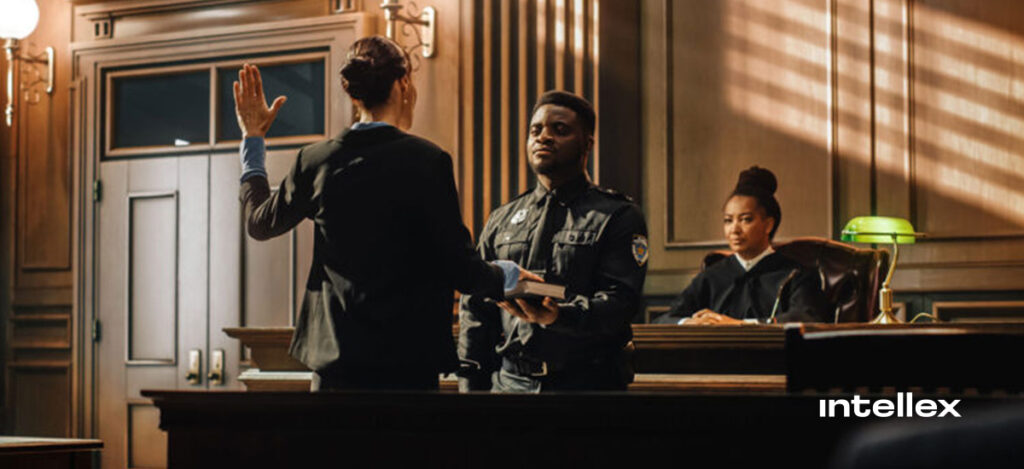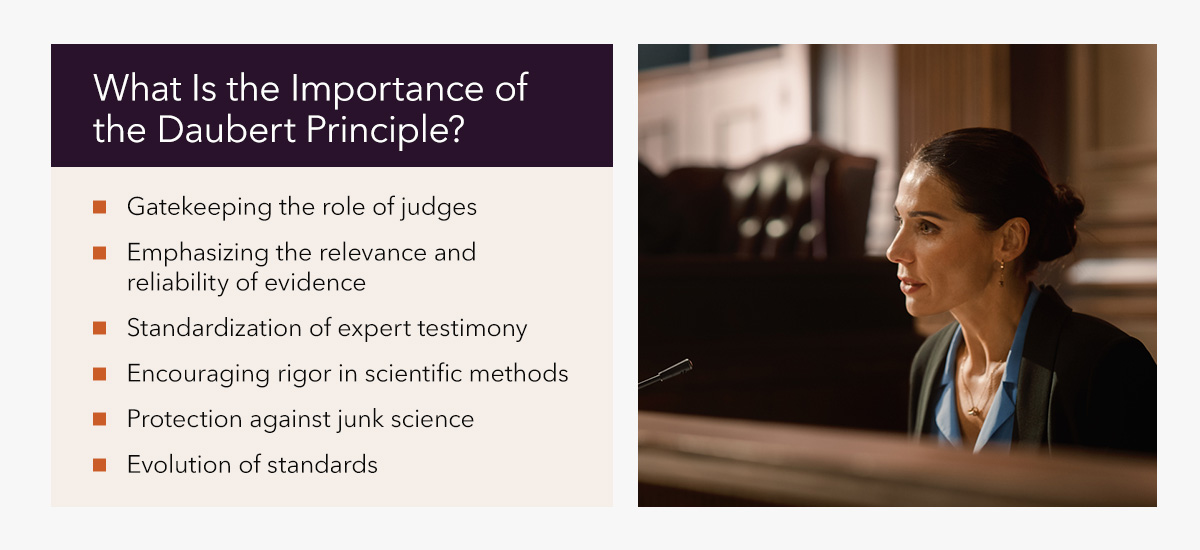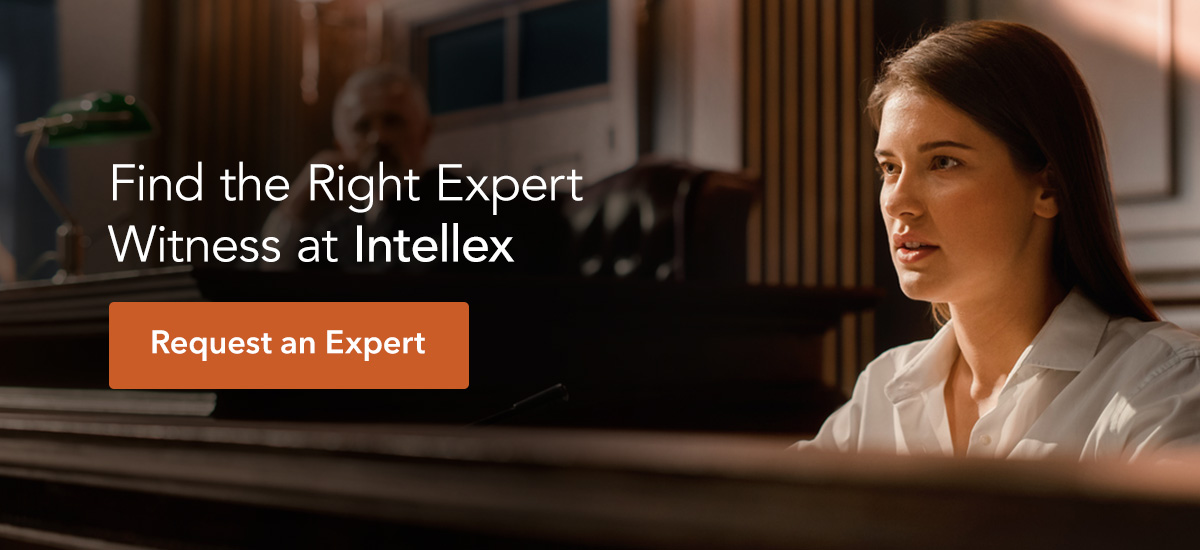
The Daubert standard determines whether expert testimony is relevant and reliable. In an age where complex scientific and technical issues intersect with legal matters, understanding it has become more pressing than ever.
What is the Daubert rule? How does it impact the admissibility of expert evidence? Learn all you need to know in our complete guide.
What Is the Daubert Standard?
The Daubert principle is a standard that United States courts use to determine the admissibility of expert testimony. It provides a systematic framework for a trial court judge to assess the relevancy and reliability of expert testimony before presenting it to a jury. The judge acts as a gatekeeper of scientific evidence, scrutinizing the expert’s methodology and the underlying scientific principles to decide whether it is admissible.
The judge evaluates the testimony based on scientific criteria, such as testability, error rates and peer review. While the final determination is discretionary, it must be guided by key factors. The Daubert standard was originally developed for scientific evidence, but it may also apply to other forms of expert testimony, including those that require technical and specialized knowledge.
Background of the Daubert Principle
The U.S. Supreme Court established the Daubert decision in 1993 in the case of Daubert vs. Merrel Dow Pharmaceuticals Incorporated. Prior, courts followed the Frye standard, established in 1923. The Frye standard focused on whether scientific evidence was generally accepted in the scientific community.
In 1975, Rule 702 of the Federal Rules of Evidence was created to expand the use of expert testimony in court. This rule allows experts to use their knowledge, experience, skills or education to assist the court. Unlike earlier standards, expert testimony no longer had to be generally accepted by the scientific community to be allowed in court, although it still had to be relevant. In the Daubert case, the Supreme Court changed the focus from general acceptance to whether the expert’s testimony is based on scientifically valid methods.
The Daubert decision set the stage for future rulings in two important cases — General Electric Co. vs. Joiner and Kumho Tire Co. vs. Carmicheal. The General Electric case held that judges had the discretion to exclude expert evidence if the methods did not reliably link to the conclusions. In the Kumho Tire case, the court extended the Daubert standard beyond scientific testimonies — the rule may apply to all expert evidence.
What Is the Importance of the Daubert Principle?
The Daubert principle is significant for many reasons:
- Gatekeeping the role of judges: The Daubert principle empowers judges to serve as gatekeepers, ensuring the presentation of valid and relevant expert testimonies in court. It helps maintain the integrity of the judicial process and safeguards against unreliable or misleading evidence.
- Emphasizing the relevance and reliability of evidence: The Daubert standard emphasizes the need for reliability and relevance, helping make sure evidence presented in court is based on sound scientific principles and methodologies. Furthermore, by only admitting reliable expert testimony, juries can make informed decisions based on credible evidence, which is vital for achieving fair and just outcomes in legal proceedings.
- Standardization of expert testimony: The Daubert standard provides a framework for evaluating expert testimony. This can enhance consistency in assessing the admissibility of such evidence and, consequently, decisions.
- Encouraging rigor in scientific methods: The Daubert principle encourages experts to adhere to rigorous standards and methodologies. High levels of scrutiny can improve the quality of research and practices within various scientific and technical fields.
- Protection against junk science: The standard helps protect the legal system from “junk science” — untested or discredited scientific theories and practices that may otherwise influence legal outcomes. This is particularly important in cases involving complex scientific issues, such as toxic torts and medical malpractice.
- Evolution of standards: The Daubert standard recognizes that scientific knowledge evolves. This flexibility allows courts to adapt to new scientific developments and methodologies, ensuring the legal system remains in sync with advances in science and technology.
What Are the 5 Daubert Factors?
The Daubert criteria are the five factors courts consider in determining the reliability of a methodology.
1. Testability of the Technique or Theory
Can the method or theory be tested? Did the expert base its conclusion on sufficient data or facts? Is the conclusion based on reliable principles and methods that have been consistently applied to the facts of the case? The principle primarily focuses on the methodology and not solely on the conclusions.
2. Peer Review and Publication
The court considers whether the methodology or theory has been subjected to peer review. Peer review is the evaluation of scientific, professional or academic work by others in the same field. It helps ensure the publication of reliable and valid research. Reviewers often make recommendations to improve the quality of work before publishing it in scholarly or scientific journals.
3. Known and Potential Error Rate
Another vital consideration is the potential error rate of the technique. The main goal is to determine whether the methodology is accurate. Where the expert cannot provide a numerical error rate, the testimony could be rendered inadmissible. Being able to analyze the possible flaws is crucial.
4. Existence and Maintenance of Standards and Controls
Are there clear standards for applying the methodology? Courts will likely deem testimony reliable if the expert can demonstrate the existence and maintenance of standards and controls for their testing.
5. General Acceptance Within the Scientific Community
The general acceptance of the methodology is still vital in determining the admissibility of evidence. While not the sole consideration, a methodology that is widely accepted within the scientific community will likely be deemed reliable.
Launching a Daubert Challenge
An opposing party can raise a Daubert challenge to exclude or limit expert testimony on the grounds that it lacks sufficient scientific validity or methodology. It is a powerful legal mechanism that can decide the outcome of a case. You can successfully launch a Daubert challenge as:
- A separate motion
- A motion in limine
- An objection at the time the evidence is being tendered
- Part of summary judgment
- In a post-trial motion
Before filing the motion, understand the opinion and the basis upon which the expert is making the claims. Second, ascertain which part of the testimony is inaccurate or contradictory. Asserting the entire testimony is unreliable without substantiating the fact is insufficient. Typically, the methodology is the first aspect you critique, and you can achieve that by subjecting it to the litmus test or criteria discussed above. Hiring an expert to identify weaknesses or inconsistencies is also crucial.
Defending Against a Daubert Challenge
There are a few steps you must take to overcome a Daubert challenge — sometimes even before the opposing counsel has the chance to raise issues.
- Understand the five factors to ensure the testimony is in order.
- Familiarize yourself with the relevant theory or methodology. Use established theories and avoid developing new ones for the current case.
- Highlight the expert’s credentials, including their training, education and experience.
- Provide all relevant studies and supporting materials to validate the claims. It is best to use published or peer-reviewed literature.
- Meet deadlines to avoid procedural issues.
Tailor the response to the points raised by opposing counsel. Determine whether they are challenging the method’s reliability or finding issues with the portions of the testimony. This strategy can help you focus your arguments on the parts that matter.
Find the Right Expert Witness at Intellex
Using the right expert witness from the beginning can mitigate the chances of a Daubert challenge. Similarly, an expert can help you find weaknesses in technical or specialized testimonies. Intellex can help in both instances.
The experts at Intellex use their technical and specialized knowledge to assist legal professionals in resolving disputes. We have a team of on-demand and highly effective subject matter experts, consultants, and expert witnesses with experience in over 30,000 different subjects. Contact us today to learn more about how we can support you with expert witness services!


